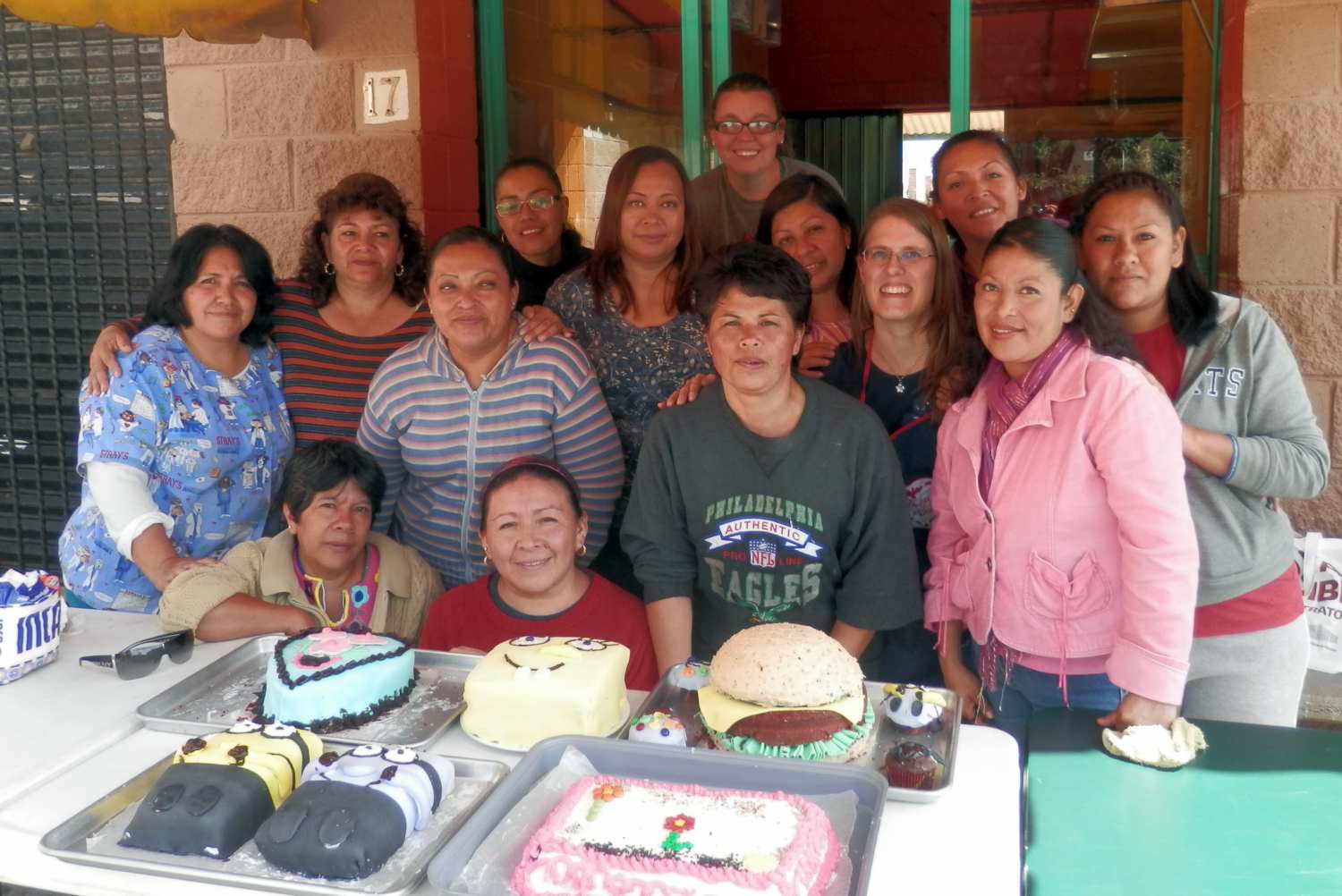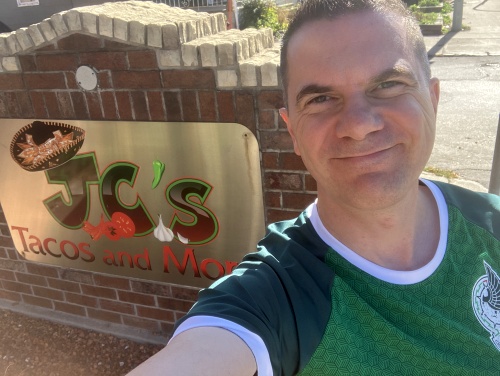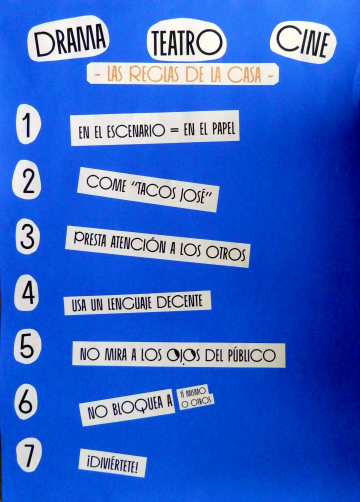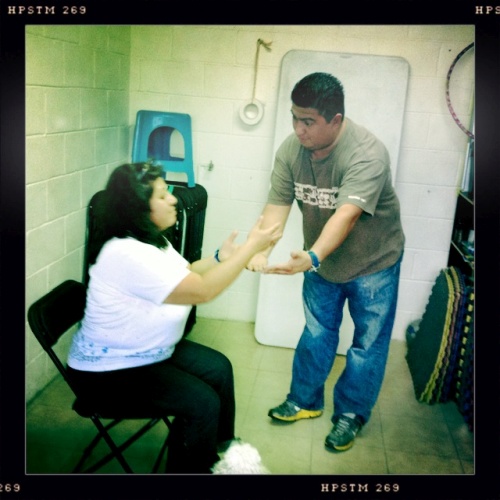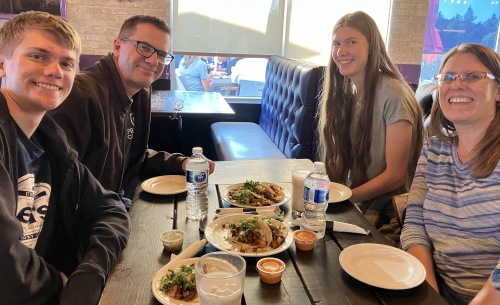Travelling is…
Travelling is good – a blessing – and also difficult.
We’ve been travelling for 5 months, which is a long time to live out of a suitcase, be out of your routine, be away from familiar surroundings. And if we’re here much longer, it will be a record time away from home.
But travelling has been a blessing as well. We’ve been able to spend time with family. We’ve been involved in ministry in many different churches. We’ve visited friends, and even made new friends.
We got together with some people at Avant who do so much for us (not pictured was Carolyn – we appreciate you too!):
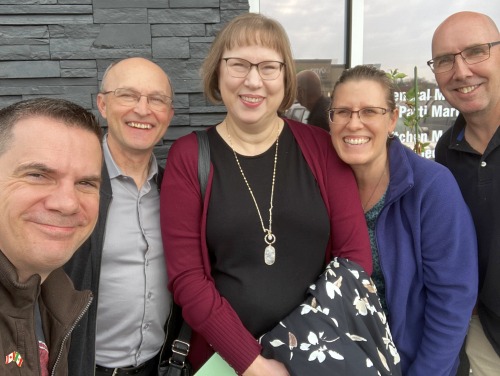
One church even put together a pretty cool Mexican display for me to stand in front of (Prairie Tabernacle):
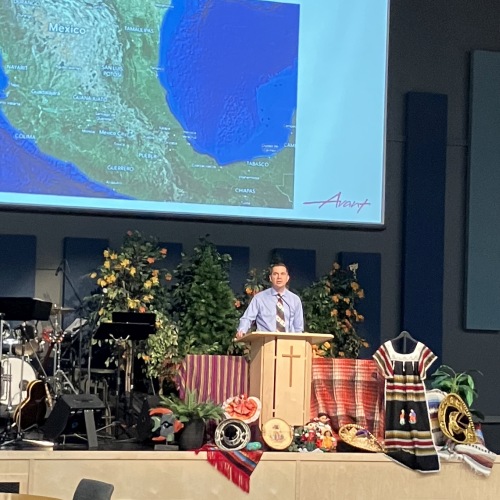
Shari shared at a women’s prayer meeting, and is preparing for another. And for those who have been asking, my Mom is doing a lot better! Here she is at the prayer meeting (front and centre)…
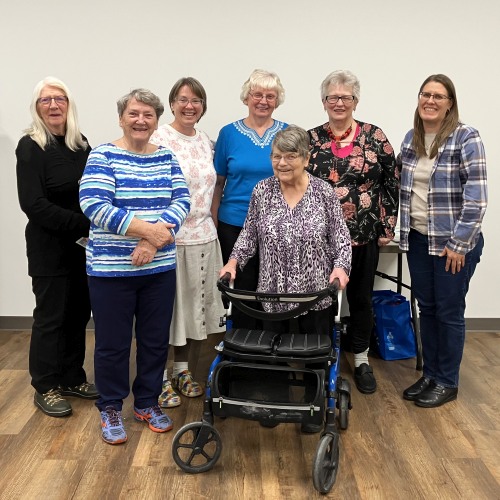
And of course there was another Where did the Bible Come from? seminar. Here’s a group pouring over “ancient” manuscripts of the fabled story of Javier the Louse…
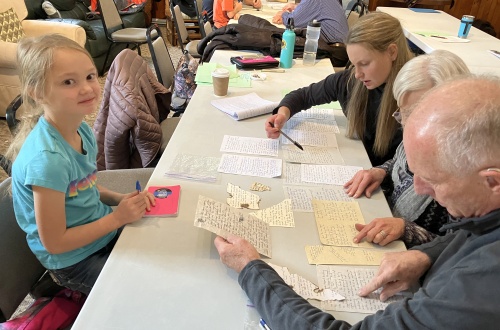
Well, there has been so much happening that I won’t go into it all here. But it’s been fun!
But we’ve also been missing Mexico. In fact, we even missed a church anniversary service for the first time – although we were “there” in spirit, and we did record a video message for the service.
And so the time is coming to prepare for travel back to Mexico. We would appreciate your prayers for reasonable tickets, and that God would give wisdom as to timing! There’s a lot to do before we go, so I’d better get to it.

